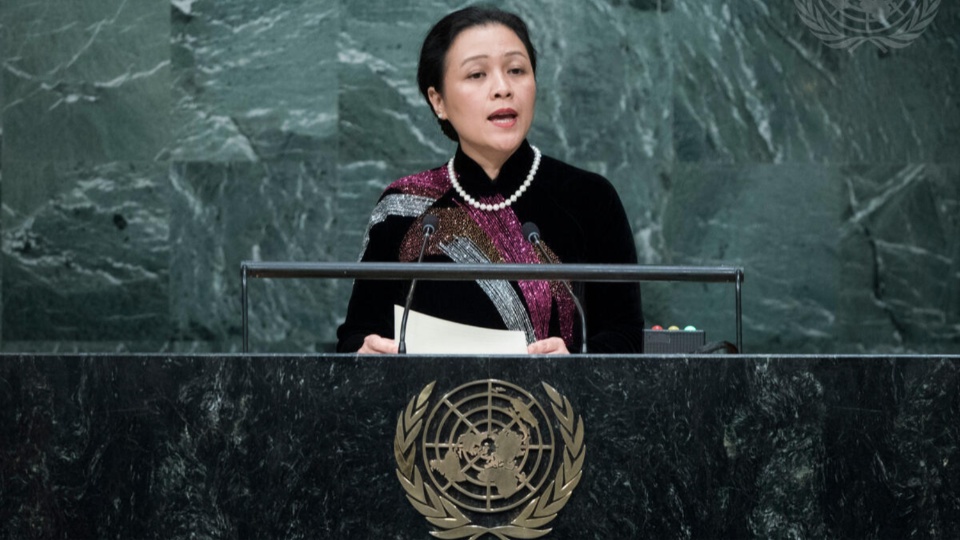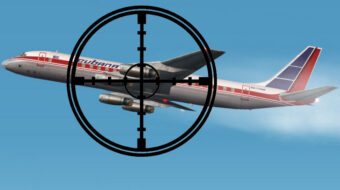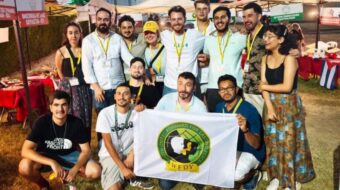
It was not too long ago that Vietnam was one of the poorest and most diplomatically isolated countries in the world, but those days are gone. Vietnam today is playing an increasingly important—and constructive—role on the international stage.
In recent years, the country has had one of the most successful tenures as chair of the Association of Southeast Asian Nations (ASEAN), led the United Nations Security Council, and has been a driving force on the U.N.’s Human Rights Council. In 2019, Hanoi played host for the summit of U.S. President Donald Trump and North Korean leader Kim Jong Un—an effort to broker a thawing of U.S.-DPRK tensions.
To understand how Vietnam has achieved such a drastic turnaround, it’s important to understand the core principles of the country’s foreign policy. In reviewing Vietnam’s tenets for international relations, it becomes immediately apparent just how greatly the Vietnamese approach differs from that of the United States.
People-first policy
One of the pillars the Vietnamese government claims it adheres to when evaluating any policy choice is that every decision must serve the people of Vietnam. The Communist Party of Vietnam, which is the ruling party, says its job is to serve the people of Vietnam—a position which, according to the party, informs Vietnam’s foreign policy.
The Four Nos
The “Four Nos” are four foreign policy redlines the Vietnamese government says it refuses to cross. They are: Vietnam will not join any military alliances; Vietnam will not side with any country to hurt another country; Vietnam will not allow any foreign military bases on its territory or any foreign military to use Vietnamese territory to attack another country; and Vietnam will not use the threat of force in diplomatic relations.
The “Four Nos” are intended to ensure Vietnam’s sovereignty. No country can truly be free and independent, the government believes, with foreign forces stationed on its territory. The principles are also intended to make it clear to all other states and international actors that the Vietnamese government can be trusted to make its own decisions free of outside influence.
The “Four Nos” are also aimed at maintaining peace in the region. The Communist Party believes that in order to continue on its road to socialism and common prosperity, peace and international exchange are absolute necessities.
In contrast to the U.S. government, which seems to be perpetually in a state of war somewhere in the world and spends half or more of its budget on the military, the Vietnamese government says it prefers to invest more in infrastructure, healthcare, modernization, and social welfare.
Peaceful Coexistence
The U.S. has historically pursued a policy of “with us or against us”; for the most part, countries are categorized as allies or adversaries. Countries on the wrong side of that divide have, at various times, faced crippling economic sanctions, coups engineered or assisted by U.S. intelligence, and even direct military assault.
Vietnam is a socialist-oriented country in a capitalist-dominated world. That’s the reality the country must face, and thus the Vietnamese government says it recognizes that a good relationship with all countries—whatever their socioeconomic system—is what most benefits the Vietnamese people. It’s what’s necessary for underdeveloped Vietnam to continue growing economically and building the requirements for socialism. Therefore, the Vietnamese government pursues a policy of peaceful coexistence with all countries.
People-to-people diplomacy
The Vietnamese approach to foreign policy goes beyond traditional diplomatic relations between state officials and diplomats. The government pursues deep, long-lasting friendships between the people of Vietnam and the people of the world. These relationships stretch beyond administrations and governments.
For example, during the U.S. war against Vietnam, the government made a great effort to develop strong relationships with anti-war activists in the U.S. and around the world. These friends of Vietnam spent decades, from 1975 to 1996, pressuring every U.S. administration to lift its criminal economic blockade of Vietnam.
This, once again, can be contrasted with U.S. foreign policy, which can drastically and suddenly change every time a new president takes office. It leaves other states never knowing where the U.S. will stand from one year to the next on major international issues. The Obama administration, for instance, signed the Paris Climate Agreement, negotiated with Iran on its nuclear program, and pursued normalization of relations with Cuba. The Trump administration that followed reversed course on every one of these policies.
A respected partner
Today, Vietnam is quickly becoming one of the more respected countries in many diplomatic circles, while U.S. prestige continues to languish, especially anywhere outside Western Europe.
The U.S. remains a superpower, and its allies and satellite countries therefore usually continue to toe the line set by Washington. However, foreign governments know they must be extremely cautious when it comes to their relations with the U.S. because everything can radically change whenever the White House gets a new occupant.
The Socialist Republic of Vietnam offers the world a different model of foreign policy. The neoliberal, capitalist world has been bogged down in decades of unending war. Vietnam not only shows that peaceful diplomatic relations are possible but also that a country can thrive and grow when pursuing peace and prioritizing the needs of its people.
As with all op-eds published by People’s World, this article reflects the opinions of its author.
We hope you appreciated this article. At People’s World, we believe news and information should be free and accessible to all, but we need your help. Our journalism is free of corporate influence and paywalls because we are totally reader-supported. Only you, our readers and supporters, make this possible. If you enjoy reading People’s World and the stories we bring you, please support our work by donating or becoming a monthly sustainer today. Thank you!










